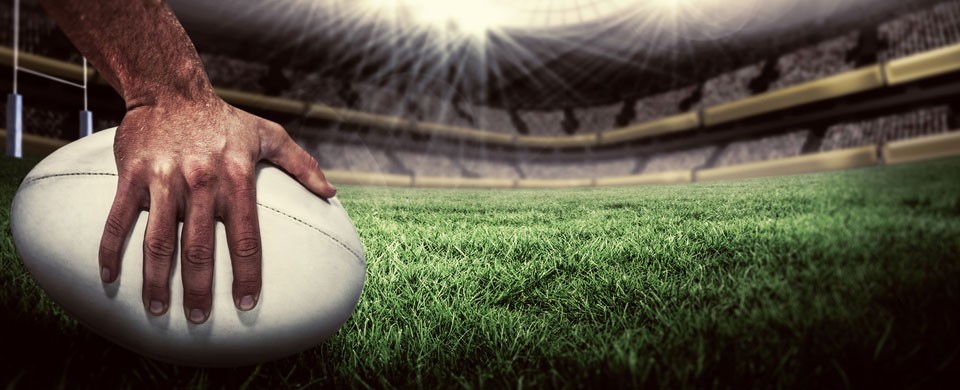In era of big money, sport needs to invest more in governance and doping control
Do sport and business mix? That question would have seemed Luddite in the heady days of the 1990s when football was first deluged with TV money and rugby turned professional.
But 20 years later, so many sports are mired in scandal that nostalgia for the Corinthian magic of the Barry John-Lyn Davies era seems wholly reasonable.
Forget the sweat, the stench of corruption is seeping from almost every sporting pore. Doping, bribery and even extortion seem commonplace.
In football, it’s backhanders to host international tournaments. In athletics, there’s the unprecedented suspension of Russia. But no sport is immune, and every country has its villains.
And, yes, we have them in Britain too. There may be ‘only’ 47 sportspeople on our current banned list, but no one seriously thinks that reflects the full extent of the problem.
Daniel Spencer-Tonks, one of 28 players from rugby league and rugby union on the list, claimed in a radio interview in October that steroid use is ‘hugely widespread’ at all levels of both codes.
“There’s a lot of pressure on players to be bigger, faster and stronger,” he said. “I wouldn’t say it was coaches saying you should take something, more the fact the players want to be the best at their sport.”
Then, last week, the spotlight turned to football. With the sport still engulfed at international level in bribery allegations, Arsenal manager Arsene Wenger stepped into the doping debate saying it would be ‘absolutely wrong’ to think drugs didn’t affect football and calling for ‘deeper, better tests’.
What will the next few weeks bring? Expect more revelations about rugby. Brace yourself for more on the crisis in athletics when French police complete their investigation into former international governing body (IAAF) officials blackmailing athletes who failed drug tests.
Many of us in athletics believe new IAAF president Seb Coe is the right man to clean up the sport, but there are worries he is compromised by his personal consultancy arrangement with Nike.
The Oregon-based sportswear giant is seen as not only having questionable ethics for sponsoring two-time drugs cheat Justin Gatlin but also as wielding too much power in the sport.
Earlier this year, the IAAF awarded the 2021 world championships to Nike’s home state without a bidding process. Potential rival Gothenburg in Sweden, which had been preparing a bid linked to the city’s 400th anniversary, was left fuming.
But the IAAF said it had dispensed with a competitive process to give athletics a chance to ‘access the most powerful economy in the world’ and hinted at being held to ransom by adding it was an opportunity that ‘may not arise again’.
Clearly, whether it’s criminal extortion, pressure to use drugs or simply the flexing of economic muscles, money has a distorting effect on sport.
It is unrealistic to think we can eliminate this completely, but sport does need much better governance structures to protect the integrity of its decision-making and keep dodgy drug peddlers at bay.
Governing bodies – especially in lower-profile sports – are under huge pressure to secure sponsorship income and tend to avoid thorny issues that could make revenue-raising harder.
That’s why Coe is right to propose that the anti-doping regime in athletics has to be completely independent of the IAAF.
And the same applies to every sport, not only because the fans deserve to know what they are watching is a fair contest but also – and more importantly – to protect young participants from the pressure to use potentially life-limiting drugs.
In gyms across Britain, young sports wannabes rub shoulders with people using steroids for image related body-building.
But ambition and drugs are a deadly cocktail, and I fear many of those who have used steroids in their teens will find in later life their kidneys and hearts start to fail.
In the United States, the Taylor Hooton Foundation is waging a national campaign to educate young people about the dangers of appearance and performance enhancing drugs (APEDs).
Their All Me APED Free T shirts are worn proudly by top sportspeople, and they have held thousands of events in high schools and colleges across the country.
We urgently need something similar. Money has increased the pressure to cheat, so let’s invest more of it in tackling the problem.
Steve Howell
This article is based on Steve’s monthly business column for Walesonline and the Western Mail newspaper.
Steve Howell is also the author of Over The Line, a novel telling the story of an Olympic poster girl facing a doping crisis.
Follow him on Twitter @fromstevehowell
Over The Line is available on Kindle (£3.49) via Amazon and in paperback (£7.99) at Waterstones and other bookshops, on Amazon or via this website’s secure PayPal order page (£7.99 post free in the UK, rates for other regions discounted) – ORDER

